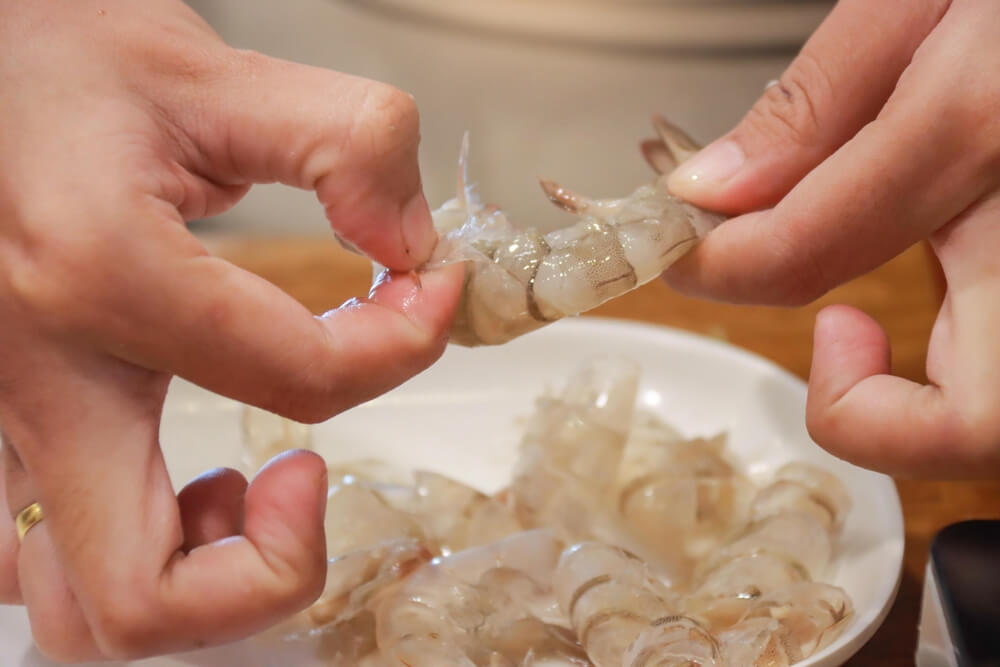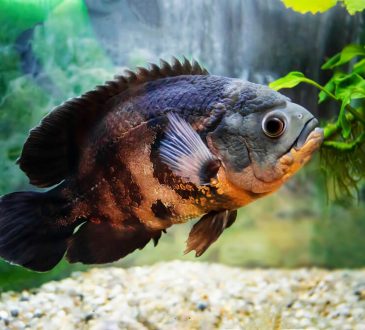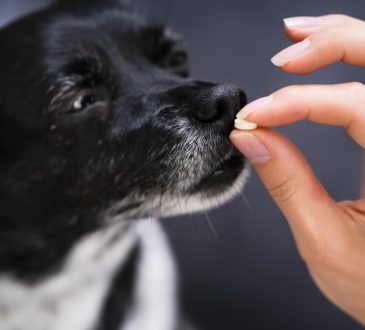Can Dogs Eat Shrimp? Unveiling the Truth About This Seafood Delight for Your Furry Friend

Shrimp is a popular seafood enjoyed by many, but as a dog owner, you might wonder, “Can dogs eat shrimp?” Let’s delve into this topic to uncover whether this seafood delight is safe for your furry friend.
Is Shrimp Safe for Dogs?
As pet owners, it’s natural to wonder about the safety of various foods for our furry friends. One common question is, “Can dogs eat shrimp?” The answer is yes, but with some important considerations. Shrimp can be a healthy treat for dogs when prepared correctly and fed in moderation.
Shrimp for dogs can provide several nutritional benefits. This seafood is low in fat and calories while being rich in protein, vitamins B12 and D, niacin, and phosphorus. These nutrients support your dog’s overall health by promoting strong muscles, a healthy metabolism, and robust immune function.
However, there are some precautions to keep in mind when offering shrimp to your pet. Always ensure that the shrimp is cooked thoroughly without any added seasonings or spices that could be harmful to dogs. Raw or undercooked shrimp may contain harmful bacteria that can lead to foodborne illnesses.
Additionally, it’s crucial to remove the shell entirely before feeding shrimp to your dog since shells can pose a choking hazard or cause digestive issues. As with any new food introduction, start by giving your dog a small amount of shrimp and monitor for any adverse reactions such as allergies or gastrointestinal upset.
While seafood for pets like shrimp can be safe and beneficial when prepared properly, it should always be given as an occasional treat rather than a regular part of their diet. Following these dog-safe seafood practices guidelines, you can safely include this tasty option in your dog’s culinary repertoire.
The Nutritional Benefits of Shrimp for Dogs
Shrimp can be a nutritious addition to your dog’s diet when offered in moderation. One of the primary benefits is the high-quality protein found in shrimp, which is essential for muscle development and overall health. Protein in shrimp provides the necessary amino acids that support various bodily functions, including tissue repair and immune system strength.
In addition to protein, shrimp are rich in omega-3 fatty acids, which are beneficial for dogs’ heart health and coat condition. Omega-3s can help reduce inflammation and support cognitive function, making them an important nutrient for dogs of all ages.
Shrimp also contain a variety of vitamins that contribute to your dog’s well-being. Vitamins such as B12 play a crucial role in maintaining healthy nerve function and energy levels. Furthermore, shrimp provide essential minerals like zinc and selenium, which support immune health and thyroid function.
Potential Risks and Precautions When Feeding Shrimp to Your Dog
Feeding shrimp to your dog can be a delightful treat, but it’s essential to be aware of potential risks and take necessary precautions. One of the primary concerns is shrimp allergies in dogs. Just like humans, dogs can have allergic reactions to shellfish, which may manifest as itching, swelling, vomiting, or diarrhea. It’s crucial to monitor your pet closely the first time they consume shrimp and consult a veterinarian if any adverse symptoms appear.
Another significant risk is shellfish poisoning in pets. Raw or undercooked shrimp can carry harmful bacteria like Salmonella or Listeria, which pose serious health threats not only to your dog but also to other household members. To mitigate this risk, ensure that the shrimp is thoroughly cooked before offering it to your furry friend.
Safe preparation of shrimp for dogs involves more than just cooking it properly. Always remove the shell, head, tail, and veins from the shrimp as these parts can cause choking hazards or digestive issues. Additionally, avoid seasoning the shrimp with ingredients that are toxic to dogs such as garlic and onions.
By understanding these potential risks and following safe preparation guidelines, you can offer shrimp as an occasional treat without compromising your dog’s health. Always remember that moderation is key and when in doubt, consult with your veterinarian for personalized advice tailored to your pet’s specific needs.
How to Properly Prepare Shrimp for Your Dog

When it comes to cooking shrimp for dogs, ensuring the safety and nutritional value of the meal is paramount. Shrimp can be a healthy treat for your canine companion if prepared correctly. Here’s how to properly prepare shrimp for your dog:
1. Choosing the Right Shrimp: Always opt for fresh or frozen shrimp that are free from preservatives and additives. Avoid feeding raw shrimp to dogs as it may contain harmful bacteria like Salmonella or Listeria.
2. Cleaning the Shrimp: Start by thoroughly washing the shrimp under cold running water. This helps remove any surface contaminants.
3. Removing Shells and Veins: Carefully peel off the shells, including the tail, to prevent choking hazards. Next, devein the shrimp by making a shallow cut along its back and pulling out the dark vein with a knife or toothpick. This step is crucial as it removes potential digestive irritants.
4. Cooking Methods: Boiling or steaming are ideal methods for cooking shrimp intended for dogs because they don’t require added fats or oils that could upset your pet’s stomach. Cook until the shrimp turns pink and opaque; overcooking can make them tough and less palatable.
5. Serving Size: Once cooked, allow the shrimp to cool before cutting it into bite-sized pieces appropriate for your dog’s size and breed.
By following these steps, you can safely incorporate this protein-rich seafood into your dog’s diet as an occasional treat while ensuring their health and well-being are maintained at all times.
Shrimp Recipes Your Dog Will Love!
When it comes to pampering your furry friend, shrimp can be a delightful and nutritious addition to their diet. Shrimp is a low-calorie, high-protein seafood that is rich in essential nutrients such as vitamin B12, phosphorus, and antioxidants. Here are some DIY dog food recipes with shrimp that your dog will love!
Shrimp and Veggie Delight
Ingredients:
– 1 cup of cooked shrimp (peeled and deveined)
– 1/2 cup of cooked brown rice
– 1/4 cup of chopped carrots
– 1/4 cup of peas
Instructions:
- Cook the brown rice according to package instructions.
- Steam the carrots and peas until tender.
- Mix the cooked shrimp, brown rice, carrots, and peas in a bowl.
- Serve at room temperature.
Shrimp Dog Treats
Ingredients:
– 1 cup of cooked shrimp (peeled and deveined)
– 1 egg
– 2 cups of whole wheat flour
– 1/2 cup of rolled oats
Instructions:
- Preheat your oven to 350°F (175°C).
- Blend the shrimp in a food processor until finely chopped.
- In a large bowl, combine the chopped shrimp, egg, whole wheat flour, and rolled oats.
- Roll out the dough on a floured surface and cut into small shapes using cookie cutters.
- Place the treats on a baking sheet lined with parchment paper.
- Bake for about 20 minutes or until golden brown.
These homemade pet food ideas are not only easy to prepare but also provide your dog with wholesome ingredients free from artificial additives commonly found in commercial dog treats with seafood.
Remember to introduce new foods gradually into your dog’s diet to ensure they do not have any adverse reactions or allergies. Always consult with your veterinarian before making significant changes to your pet’s diet plan.
With these simple recipes on hand, you can treat your canine companion to delicious homemade meals that are both nutritious and tasty!
Moderation is Key When Treating Your Dog with Shrimp
When it comes to treating your dog with shrimp, moderation is essential. While shrimp can be a nutritious addition to your dog’s diet, offering a good source of protein, vitamins, and minerals, it’s important to serve it in appropriate amounts and ensure it’s properly prepared. Always cook the shrimp thoroughly and remove any shells or tails to avoid choking hazards or potential digestive issues.
Additionally, it’s crucial to monitor your dog for any signs of allergies or adverse reactions when introducing shrimp into their diet. Symptoms such as itching, swelling, or gastrointestinal upset should prompt an immediate consultation with your veterinarian.
Incorporating shrimp as an occasional treat rather than a regular part of their diet will help maintain a balanced nutritional intake for your furry friend. By practicing moderation and being mindful of preparation methods, you can safely enjoy sharing this tasty seafood treat with your dog while ensuring their health and well-being.




